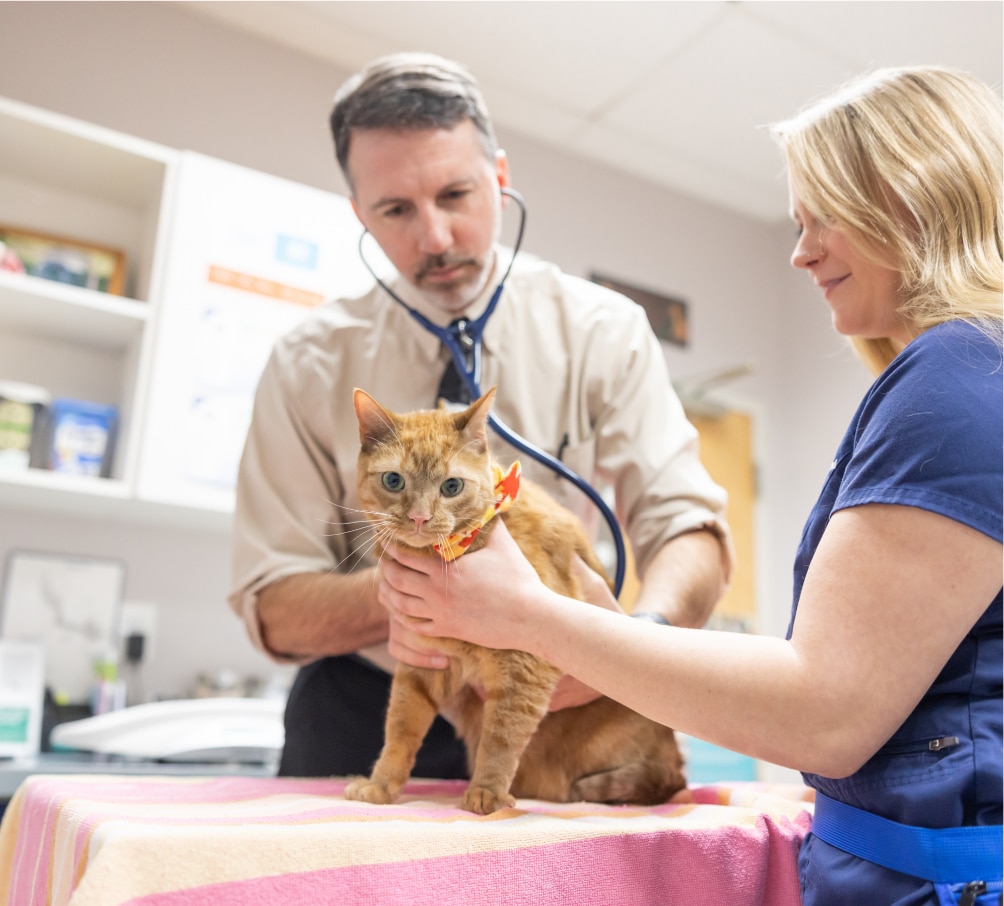Houseplants are a great way to bring a little extra life, greenery, and air filtration into your home. Green thumbs swear by them, but what happens when your love for plants comes at the expense of your pet’s safety?
It’s true – certain houseplants can be toxic or even deadly when ingested by cats and dogs. And because our furry friends don’t know any better, it can be very difficult to keep the leaves of houseplants out of their mouths.
Here is everything you need to know about houseplants and your pet:
Toxic Houseplants to Avoid
There are many common houseplants to choose from. Here are a few that pet owners should avoid because of their toxic properties:
- Snake plants
- Azalea
- Foxglove
- Baby’s Breath
- Daffodils
- Sago Palm
- Milkweed
- Lilies
- Jade
- Aloe vera
- Tomato Plants
- Ivy
- Pothos
- Tulips
- Eucalyptus
These plants can cause a variety of issues in pets, some more severe than others. If your pet is showing concerning signs, bring him to urgent or emergency care.
If you have any of these plants in or around your home, you should work to minimize access your pet has to this area, or get rid of the plants altogether.
Common Houseplants That Are Safe for Pets
The good news is there are many safe plants you can use to replace the old dangerous ones, including:
- Spider plant
- Boston fern
- African violet
- Air plant
- Rattlesnake plant
- Orchids
- Christmas cactus
- Ponytail palm
- Parlor palm
- Areca palm
- Peperomia
- Prayer plant
- Staghorn fern
- Bromeliad
- Most succulents
These plants are non-toxic to pets and totally safe to have in accessible areas! However, you will still want to discourage your pet from munching on these leaves because digesting too much of any plant can be unhealthy.
Plus, this training will come in handy when your pet encounters a more dangerous plant.
How to Keep Your Pet Safe
As mentioned above, appropriate training is one of the most useful tools for keeping your pet safe.
If you own a toxic plant that you can’t bear to part with, you could try hanging it out of reach of your pet. But be aware the falling leaves can still be ingested, and if your pet is particularly crafty or mischievous, he will find a way to get to it.
Remember, it’s always better to be safe than sorry. In this case, you should definitely consider giving away the toxic plant.
You should also know the warning signs of toxicity in pets. Most commonly, this will manifest through vomiting, diarrhea, and/or trembling. Other symptoms might include excessive drooling, difficulty breathing, or even collapse.
If you suspect your pet has ingested a toxic plant, call ASPCA’s Animal Poison Control Center (1-888-426-4435) or your local veterinary emergency clinic immediately.
If you are unsure about a plant you may have, or are considering, visit the ASPCA’s website for a more comprehensive list of common plants.
Animal Hospital in Frederick, MD
You work hard to keep your pet safe. When something goes wrong, you need a local vet you can trust. You need Old Farm Veterinary Hospital.
We treat your pet like family, guaranteeing he will be safe and comfortable throughout the appointment. From wellness exams and vaccinations to diagnostic testing and surgery – when your furry friend needs a check-up, bring him to Old Farm Veterinary Hospital!



